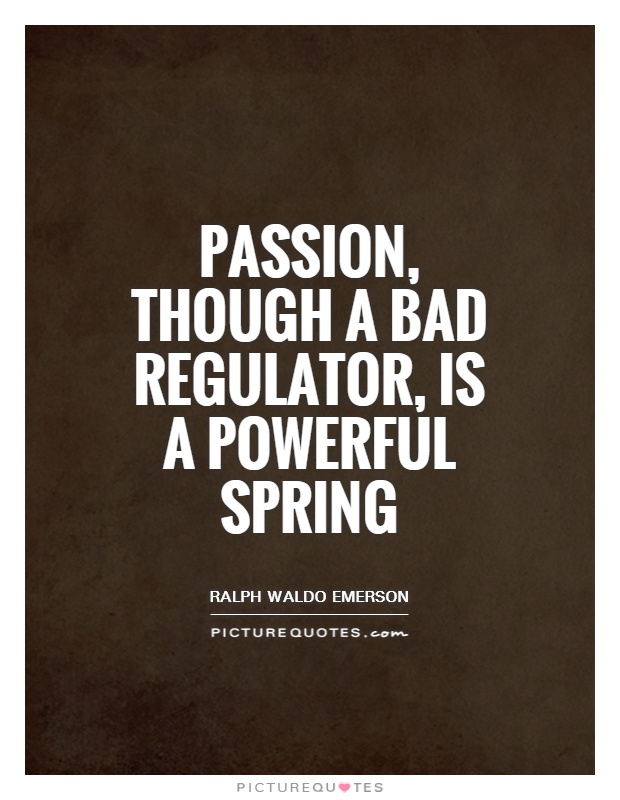Passion, though a bad regulator, is a powerful spring

Passion, though a bad regulator, is a powerful spring
Ralph Waldo Emerson, a renowned American essayist, lecturer, and poet, was a firm believer in the power of passion. He often emphasized the importance of following one's passions and allowing them to guide one's actions and decisions. In his essay "Self-Reliance," Emerson famously wrote, "Passion, though a bad regulator, is a powerful spring." This statement encapsulates Emerson's belief that while passion may not always lead to rational or logical decisions, it can serve as a driving force that propels individuals towards their goals and aspirations.Emerson understood that passion can sometimes cloud judgment and lead individuals astray. However, he also recognized that passion has the ability to ignite a fire within individuals and inspire them to pursue their dreams with unwavering determination. In his view, passion is a powerful force that can fuel creativity, drive innovation, and push individuals to overcome obstacles and challenges.
Emerson's own life and work are a testament to the power of passion. As a writer and thinker, he was deeply passionate about exploring the complexities of human nature, the beauty of the natural world, and the interconnectedness of all things. His essays and lectures were infused with a sense of urgency and enthusiasm that resonated with his audiences and inspired generations of readers.
Emerson believed that passion was essential for living a fulfilling and authentic life. He encouraged individuals to listen to their inner voices, follow their hearts, and pursue their passions with courage and conviction. For Emerson, passion was not just a fleeting emotion, but a deep-seated drive that could lead to personal growth, self-discovery, and ultimately, a sense of purpose and fulfillment.












 Friendship Quotes
Friendship Quotes Love Quotes
Love Quotes Life Quotes
Life Quotes Funny Quotes
Funny Quotes Motivational Quotes
Motivational Quotes Inspirational Quotes
Inspirational Quotes